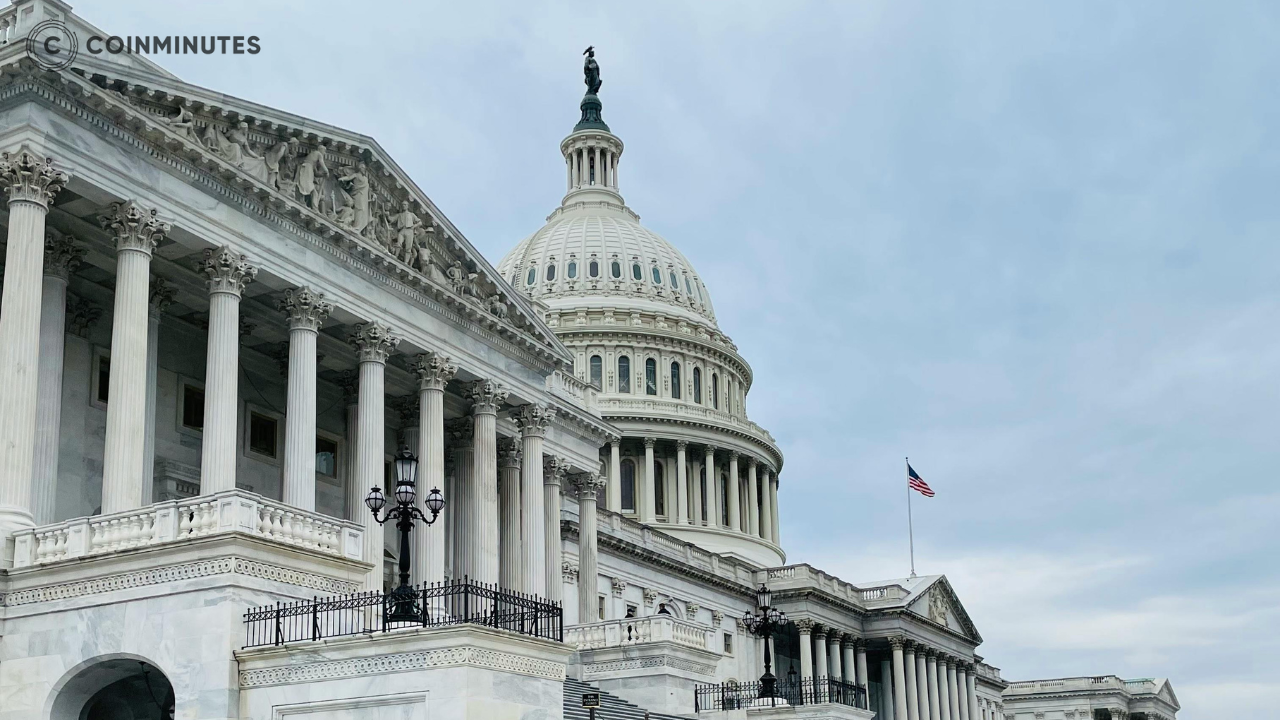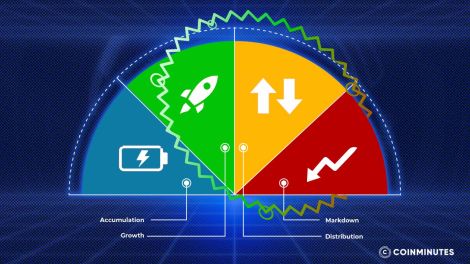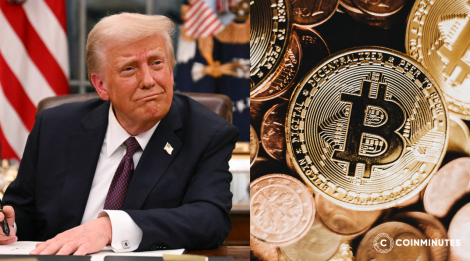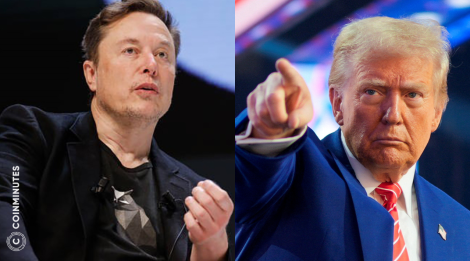House Blockchain Act: America's $1.7 Trillion Bet Against China's Digital Dominance

Washington just changed the technology game.
The U.S. House of Representatives has pushed through the Deploying American Blockchains Act of 2025, a watershed bill that marks America's official entry into the global blockchain race. This bipartisan legislation, spearheaded by Representatives Cammack and Soto, commands the Commerce Department to develop America's first comprehensive blockchain strategy—potentially unleashing an innovation tsunami across the economy.
This isn't legislative theater.
It's America's $1.7 trillion counterpunch to China's blockchain ambitions. And it perfectly dovetails with President Trump's aggressive crypto agenda. But what does this mean for your digital privacy? Your job? Your investments? And why is Washington suddenly obsessed with a technology most politicians couldn't define two years ago?
The Blockchain Mandate: What This Bill Actually Forces Government to Do
Forget empty political promises. This legislation has teeth.
The Deploying American Blockchains Act forces the federal government into action with hard deadlines. Within just 12 months, the Commerce Department must deliver a comprehensive strategy built around four non-negotiable pillars:
-
Nationwide security standards for blockchain networks
-
Public-private innovation partnerships across industries
-
Consumer protection frameworks that don't kill innovation
-
Strategic investments in blockchain education and research
"We're not talking about cryptocurrency speculation," emphasized Senator Laura Moreno during heated committee debates. "We're building digital infrastructure that will power America's next economic revolution."
The bill sailed through with a 312-119 vote.
This unusual bipartisan support signals something rare in today's Washington—actual agreement that some technologies transcend political tribalism.
But why should you care?
Because blockchain—essentially an unhackable digital record-keeping system—could transform your everyday interactions with healthcare, property records, identity verification, and dozens of other systems. It creates forgery-proof digital records without requiring trust in central authorities.
Think of your medical records scattered across six different doctors' offices. Now imagine them instantly accessible yet completely secure—controlled by you, not some corporation.
That's just the beginning.
Digital Cold War: America's Answer to China's $54.5 Billion Blockchain Offensive
The timing isn't random.
China recently unveiled a staggering $54.5 billion national blockchain initiative that's reshaping their entire economy. Beijing's plan weaves blockchain into everything from government services to manufacturing to their controversial social credit system.
America just blinked first.
"The United States cannot afford to sit on the sidelines while China and other adversaries race to set the global rules of the road," Congresswoman Cammack warned during tense floor debates.
Her urgency reflects alarming trends. Chinese blockchain patents have outpaced American filings for three straight years. The Chinese Blockchain-based Service Network has already expanded into 130+ cities, creating what analysts call a "digital Silk Road" that extends Beijing's technological reach globally.
The philosophical divide couldn't be starker.
While China builds a centralized, government-controlled blockchain ecosystem, America's legislation emphasizes private innovation with light-touch oversight. This fundamental difference reflects the broader ideological competition reshaping global technology.
"Today's technical standards become tomorrow's power structures," blockchain policy expert Jennifer Morris told me. "This bill acknowledges that uncomfortable reality."
Can America still catch up? The next 24 months will likely decide.
Job Creation Engine: Why Blockchain Deployment Could Reshape Your Career
Follow the money—specifically, your future paycheck.
Industry projections suggest comprehensive blockchain adoption could generate between 350,000 and 500,000 new American jobs within a decade. These aren't just tech positions—they span finance, healthcare, logistics, government, and manufacturing.
Boston Consulting Group estimates blockchain technologies will inject $1.76 trillion into the global economy by 2030. Strategic deployment could help America capture over 30% of that growth.
What does this mean for your career prospects?
The bill specifically promotes development of:
-
Blockchain systems architects commanding $145,000-$200,000 salaries
-
Smart contract developers earning $120,000-$175,000
-
Cryptographic security specialists making $110,000-$190,000
-
Blockchain business consultants pulling $95,000-$165,000
Perhaps most revolutionary? These jobs won't cluster exclusively in Silicon Valley or New York.
"This technology naturally resists centralization," Representative Soto explained after the vote. "That means blockchain opportunities can flourish in Wyoming just as easily as in Boston."
When was the last time a major technological shift promised to spread economic benefits beyond the usual coastal hubs?
Your industry is likely already exploring blockchain applications. Are you prepared?
Policy Synergy: The Four-Part Plan Reshaping America's Digital Economy
This bill doesn't operate in isolation.
It forms the architectural foundation of what experts now call the "American Blockchain Strategy"—a comprehensive approach that includes President Trump's Strategic Bitcoin Reserve, the Financial Innovation and Technology for the 21st Century Act (FIT21), and the GENIUS Act for stablecoin regulation.
These initiatives interlock like puzzle pieces:
-
Strategic Bitcoin Reserve: Creates America's digital Fort Knox
-
FIT21: Establishes regulatory jurisdictions to end agency turf wars
-
GENIUS Act: Provides framework for dollar-backed digital currencies
-
Deploying American Blockchains Act: Directs nationwide infrastructure development
"We haven't seen this kind of coordinated technology policy since the internet's commercial dawn," digital economy researcher Martin Chen told me yesterday. "These interlocking initiatives create an ecosystem, not isolated regulations."
President Trump enthusiastically backed the legislation at last week's Digital Assets Summit, calling it "absolutely essential to America's technological dominance."
For businesses and investors, this regulatory clarity eliminates the uncertainty that has paralyzed blockchain adoption for years.
But a critical question remains: will these changes arrive quickly enough to matter?
Beyond Bitcoin: How Blockchain Will Touch Your Everyday Life
Crypto prices aren't the real story here.
The most significant impacts of national blockchain deployment will emerge in non-financial applications that reshape your daily interactions:
-
Digital identity systems that eliminate password headaches while enhancing privacy
-
Medical records that follow you seamlessly between healthcare providers
-
Supply chain tracking that instantly verifies product authenticity and ethical sourcing
-
Property records that eliminate costly title searches and ownership disputes
-
Voting systems with unprecedented security and transparency
Take digital identity. You currently juggle dozens of passwords, PINs, and verification systems across various services. A blockchain-based identity framework could provide one secure verification system while giving you control over your personal data.
"Blockchain fundamentally rewires power relationships in the digital world," DeFi expert Sarah Williams explained in our recent interview. "It shifts control from centralized gatekeepers back to individuals."
Decentralized Finance—blockchain-based financial services operating without banks or brokers—represents another frontier. These applications enable direct lending, borrowing, and trading without middlemen, potentially opening financial services to millions currently locked out of traditional banking.
Does any other technology promise to simultaneously strengthen institutions while empowering individuals?
Implementation Clock: The Blockchain Deployment Timeline Starts Now
The countdown has begun.
The bill moves next to the Senate, where companion legislation introduced by Senators Moreno, Sheehy, and Blunt Rochester awaits consideration. Senate sources indicate likely passage before August recess, potentially landing on the President's desk by early September.
Assuming presidential approval, key milestones include:
-
Blockchain Strategy Task Force formation (60 days)
-
Public comment period (90-180 days)
-
Draft strategy publication (270 days)
-
Final national strategy implementation (12 months)
In practical terms, substantial federal guidance for blockchain deployment should arrive by Fall 2026, with initial frameworks emerging much sooner.
"The legislation strikes a careful balance between urgency and thoughtfulness," technology policy analyst Richard Winters noted yesterday. "It recognizes America needs to move quickly without rushing blindly ahead."
This creates a critical planning window for businesses and investors.
Those who position themselves strategically before the national rollout stand to benefit most. The legislation's strong bipartisan support also suggests these initiatives might survive potential administration changes—creating rare policy stability in the volatile technology sector.
Is your business prepared for the blockchain economy that now appears inevitable?
Digital Crossroads: Why America's Blockchain Moment Matters Beyond Tech
The stakes extend far beyond Silicon Valley.
The Deploying American Blockchains Act represents America's acknowledgment that digital infrastructure now determines economic destiny. By creating a coordinated national approach, the legislation validates what industry leaders have argued for years: fragmented, reactive policies won't secure America's technological future.
"This is our Sputnik moment for digital infrastructure," declared Congressman Soto after the historic vote. "Either America leads in defining how blockchain reshapes our world, or we'll be forced to live by standards others create."
The global technology competition has entered a new phase.
With China's massive investments, Europe's regulatory framework, and now America's comprehensive strategy, blockchain's evolution will increasingly reflect geopolitical competition rather than purely technical considerations.
For American businesses, investors, and citizens, the message couldn't be clearer: blockchain has transformed from speculative technology to strategic necessity. The question isn't whether it will reshape key industries, but how quickly—and whether America will lead that transformation or merely react to it.
 English
English
 Vietnamese
Vietnamese














